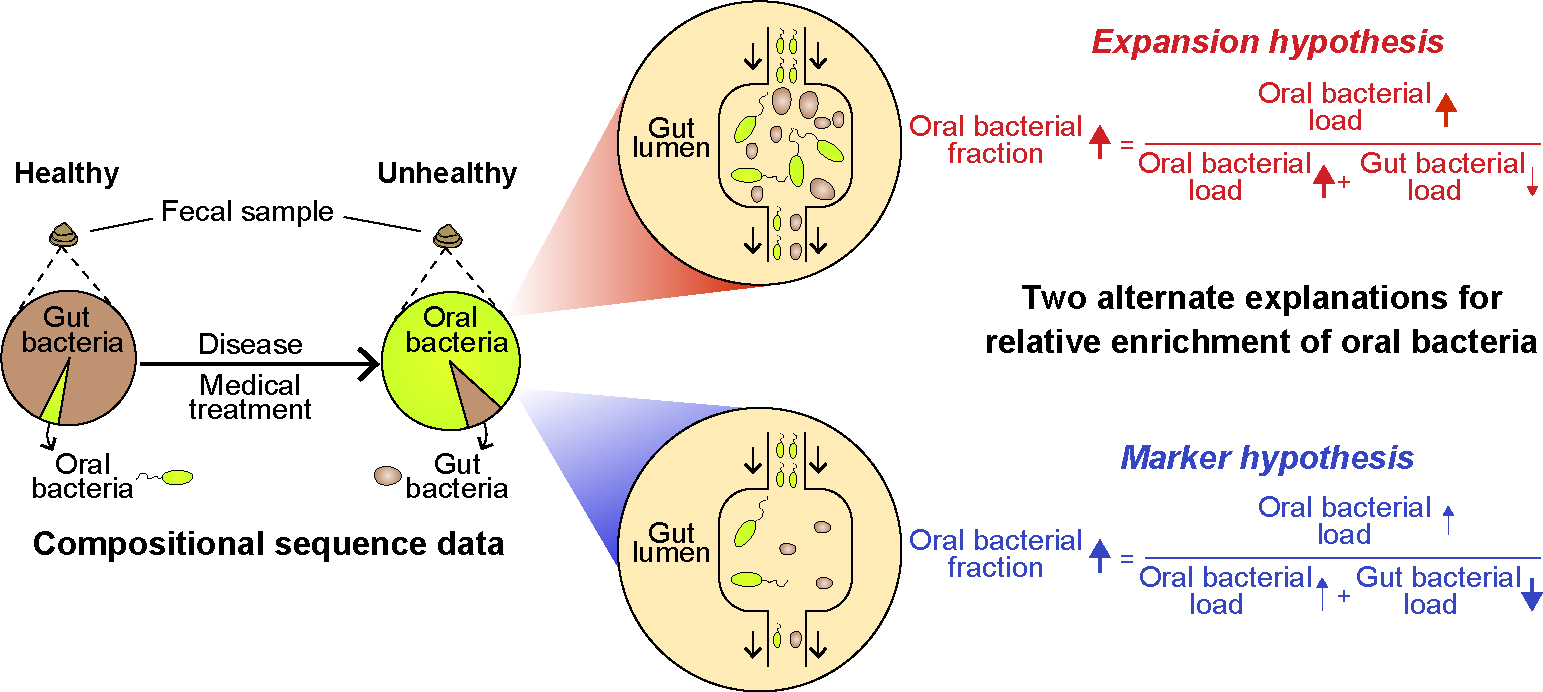Figure 1: The relative enrichment of oral bacteria in feces has two competing explanations.

Certain diseases and medical treatments lead to an enrichment of oral bacteria in fecal samples. This phenomenon has two plausible explanations. In the Expansion hypothesis (highlighted in red), the increased fraction of oral bacteria is caused by a similar rise in absolute numbers. On the other hand, the Marker hypothesis (highlighted in blue) attributes this phenomenon to the depletion of gut bacteria. Whereas the Expansion hypothesis suggests that the gut environment has become more favorable for oral bacteria, the Marker hypothesis proposes that the number of gut resident bacteria has decreased. Consequently, the oral bacteria, which are simply passing through, increase in proportion in feces. Distinguishing between these two hypotheses is crucial for interpreting microbiome population dynamics through compositional analysis of fecal samples.
